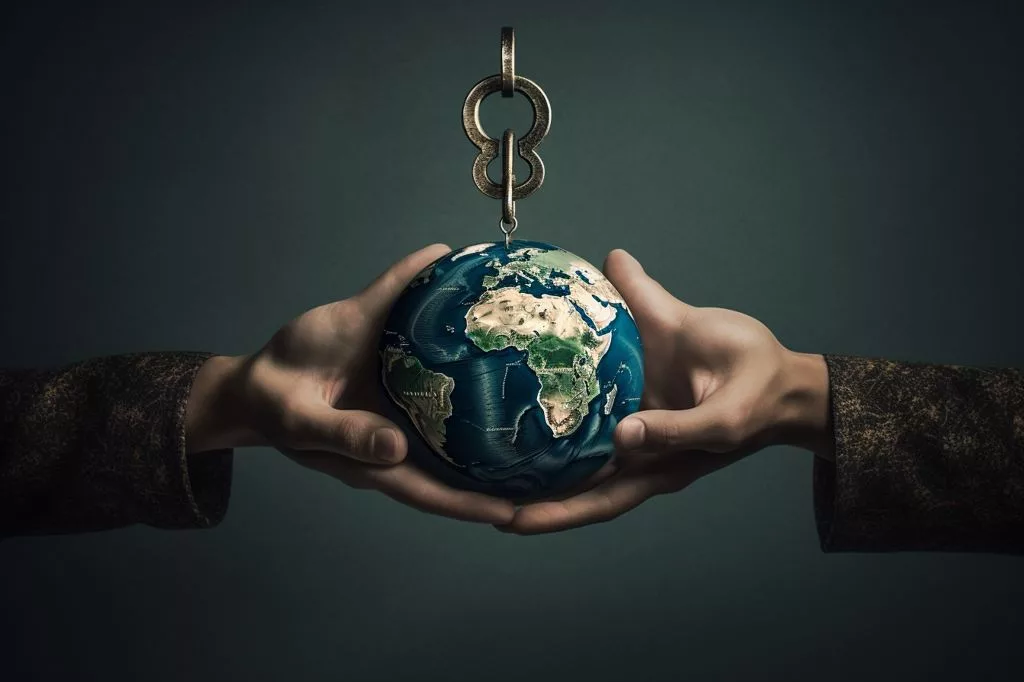The South African Health Minister, Dr. MJ Phaahla, believes that mental health is a fundamental human right, yet less than 30% of people with mental health disorders receive treatment in South Africa. Dr. Phaahla emphasized the need for a united effort to raise mental health awareness and minimize stigma, and highlighted the essential role of civil society, faith-based organizations, and traditional health practitioners in prevention, care, treatment, and rehabilitation. Efforts have been made to enhance access to mental health services, including developing guidelines for identifying and treating conditions at the primary health care level and training community health care workers in basic mental health care skills.
Is mental health a fundamental human right?
According to South African Health Minister Dr. MJ Phaahla, mental health is a fundamental human right. He calls for stakeholders, local communities, employers, and families to support and respect the rights of mental health care users. Less than 30% of people with mental health disorders receive treatment in South Africa, and Dr. Phaahla emphasizes the need for a united effort to raise mental health awareness and minimize related stigma. Efforts have been made to enhance access to mental health services, including developing guidelines for identifying and treating conditions at the primary health care level and training community health care workers in basic mental health care skills.
Addressing the Importance of Mental Health
During a recent address at the World Mental Health Day commemoration event, South African Health Minister Dr. MJ Phaahla stressed the vital role of mental health in society and the necessity to raise public consciousness on this critical issue. The event was held at Madadeni Hospital in KwaZulu-Natal Province on October 10, 2023.
Dr. Phaahla emphasized mental health as a fundamental human right, calling for the collaboration of stakeholders, local communities, employers, and families to support and respect the rights of mental health care users. He recognized the widespread social stigma and discrimination faced by individuals with mental health issues, indicating that such challenges often prevent them from seeking help and ultimately worsen their conditions.
He pointed out that less than 30% of people with mental health disorders receive treatment in South Africa, while the remaining majority remain undetected and at risk, potentially posing harm to others. Given the severe repercussions of untreated mental health issues, he called for a united effort to raise mental health awareness and minimize related stigma.
Working Towards Quality Mental Health Services
This year’s World Mental Health Day theme, “Mental Health is a Universal Human Right,” serves as a reminder of the urgent need to reinforce access to quality mental health services and ensure that the human rights and well-being of those experiencing mental disorders are sufficiently protected and regarded.
Dr. Phaahla looked back on the inaugural South African Mental Health Conference held earlier in the year, which fostered essential discussions on the policy framework and strategy that guide mental health implementation efforts. The conference allowed mental health experts, policymakers, service providers, and individuals with lived experiences of mental health problems to exchange best practices and strategies to improve mental health service provision and promote health-seeking behavior.
The Minister recognized the historical neglect of mental health, particularly in resource allocation. Still, he stressed that mental health is crucial to treatment outcomes for various chronic diseases, including HIV/AIDS and tuberculosis. In fact, the 2019 Global Burden of Diseases Study showed that mental disorders ranked among the top ten leading causes of disease burden worldwide, including in the sub-Saharan African Region.
Addressing Challenges and Enhancing Access to Services
Dr. Phaahla discussed the current socioeconomic challenges resulting from the COVID-19 pandemic and the increased risk factors for mental illness that have placed additional strain on people’s mental well-being. Mental health affects individuals of all races and cultures, with women being more vulnerable to depression and anxiety disorders, while men are more prone to substance use disorders.
Suicide represents another significant challenge, with children as young as six years old taking their lives. Although suicide is not always the result of mental illness, mental disorders are among the primary risk factors. Health facilities play a critical role in managing suicide attempts, and the South African government has introduced a new indicator on suicide attempts in its health information system for the 2023/24 financial year.
Mental health is not just an individual concern but a vital aspect of social and economic development that necessitates a multisectoral and all-society approach. Dr. Phaahla highlighted the essential role of civil society, faith-based organizations, and traditional health practitioners in prevention, care, treatment, and rehabilitation.
Various efforts have been made to enhance access to mental health services in South Africa, including developing guidelines for identifying and treating conditions at the primary health care level, incorporating psychotropic medications in the primary health care essential medicines list, and training community health care workers in basic mental health care skills. Moreover, a conditional grant has been provided to contract mental health professionals, and mental health units have been attached to 42 general hospitals.
Fostering Compassion and Care for Mental Well-being
In his closing remarks, Dr. Phaahla encouraged everyone to become more compassionate and caring individuals. He underscored that while clinicians and professionals can provide treatment for mental health conditions, each person has a role in fostering the mental well-being of their loved ones.
What did South African Health Minister Dr. MJ Phaahla stress during the World Mental Health Day commemoration event?
Dr. Phaahla stressed the vital role of mental health in society and the necessity to raise public consciousness on this critical issue. He emphasized mental health as a fundamental human right, calling for the collaboration of stakeholders, local communities, employers, and families to support and respect the rights of mental health care users.
What percentage of people with mental health disorders receive treatment in South Africa?
Less than 30% of people with mental health disorders receive treatment in South Africa.
What are some efforts made to enhance access to mental health services in South Africa?
Efforts have been made to enhance access to mental health services, including developing guidelines for identifying and treating conditions at the primary health care level, incorporating psychotropic medications in the primary health care essential medicines list, and training community health care workers in basic mental health care skills. Moreover, a conditional grant has been provided to contract mental health professionals, and mental health units have been attached to 42 general hospitals.
What did the South African Mental Health Conference discuss?
The inaugural South African Mental Health Conference fostered essential discussions on the policy framework and strategy that guide mental health implementation efforts. The conference allowed mental health experts, policymakers, service providers, and individuals with lived experiences of mental health problems to exchange best practices and strategies to improve mental health service provision and promote health-seeking behavior.
What challenges has the COVID-19 pandemic posed for mental health?
The COVID-19 pandemic has resulted in current socioeconomic challenges that have increased risk factors for mental illness and placed additional strain on people’s mental well-being.
Who are more vulnerable to depression and anxiety disorders, and who are more prone to substance use disorders?
Women are more vulnerable to depression and anxiety disorders, while men are more prone to substance use disorders.
What is the role of civil society, faith-based organizations, and traditional health practitioners in mental health?
Civil society, faith-based organizations, and traditional health practitioners play an essential role in prevention, care, treatment, and rehabilitation of mental health.
What is the South African government’s plan to manage suicide attempts?
The South African government has introduced a new indicator on suicide attempts in its health information system for the 2023/24 financial year. Health facilities play a critical role in managing suicide attempts.








